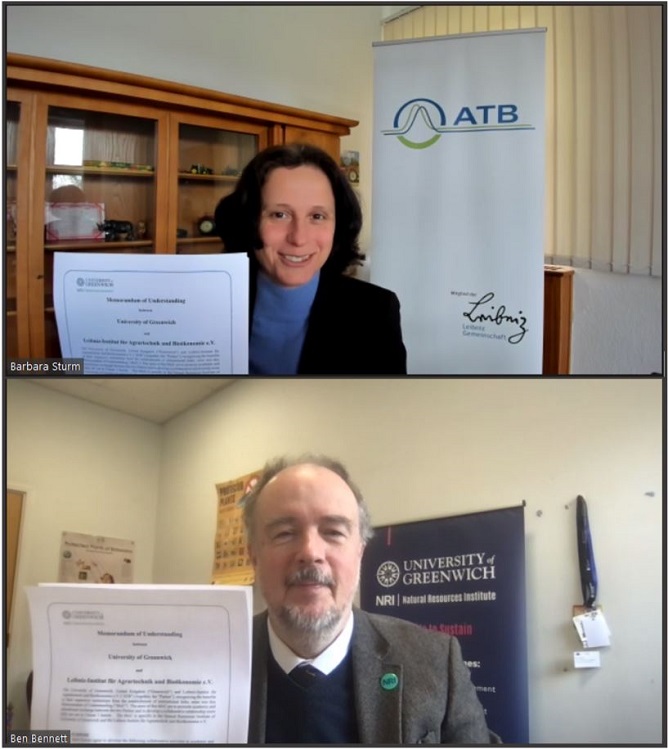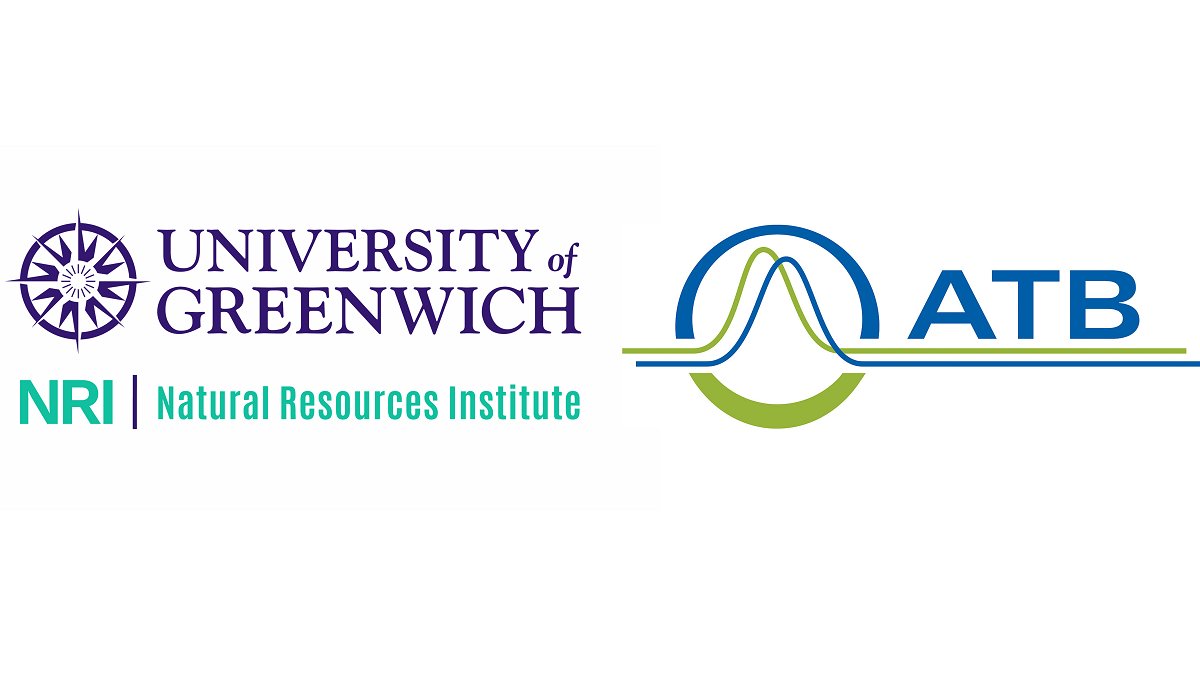At the start of 2022, NRI signed a Memorandum of Understanding (MoU) with the Leibniz Institute for Agricultural Engineering and Bioeconomy (ATB), based in Potsdam, Germany. The agreement is to develop close cooperation between the two institutes in sustainable and innovative technologies to enhance agricultural systems globally. The emphasis is to take part in joint specialist research, development and academic programmes related to food, agriculture, environment and sustainable livelihoods within the principles of circular, diverse and innovative bio-economy processes.
The two institutes plan to develop various activities, which include the exchange of information and research results, exchange of scientific staff and students, joint scientific publications and realisation of joint research projects. Moreover, opportunities for conducting joint lectures, seminars and conferences (including online) will be explored.

NRI has decades of experience in making agricultural technologies more sustainable and innovative; one example is the process used to dry agricultural products. As NRI’s Professor Ben Bennett explains, “Dry goods keep longer and also weigh less, which lowers transportation costs. At harvest time, farmers may have a glut of one particular crop, with more produce than they can eat or sell, so food that is not used is dried or preserved for later use. However, drying is not as easy as it looks, especially when the air is humid and rain frequent. If you can dry a proportion of a crop and sell it later on in the year, it evens out your income stream.”
“We are very much looking forward to intensifying our collaboration with NRI in the field of drying and drying technologies to start with”, underlines Prof Barbara Sturm, ATB’s Scientific Director. “Improved conservation technologies which preserve the product quality and can be realised at low cost can contribute to the reduction of food losses worldwide, but in particular in the global South. We will start soon with joint online workshops and hope to get the scientific exchange and first common projects off the ground this year.”
It is expected that the collaboration will extend to other areas of mutual interest in both pre-and post-harvest agriculture, the environment and bio-economy.
The Natural Resources Institute (NRI) is a specialist research, development and education organisation of the University of Greenwich, UK, with a focus on food, agriculture, environment, and sustainable livelihoods. Using an interdisciplinary approach, NRI undertakes research, teaching, training and consultancy to address interrelated global challenges affecting everyone from local farmers and consumers, to the UK food industry, to smallholder communities in low- and middle-income countries.
The Leibniz Institute for Agricultural Engineering and Bioeconomy (ATB) is a pioneer and a driver of bioeconomy research. ATB creates the scientific foundation to transform agricultural, food, industrial and energy systems into a comprehensive bio-based circular economy. ATB develops and integrates techniques, processes and management strategies, effectively converging technologies to intelligently crosslink highly diverse bioeconomic production systems and to control them in a knowledge-based, adaptive and largely automated manner. ATB with its approx. 250 employees is member of the Leibniz Association, that connects 97 independent non-university research institutions from various disciplines.
Links:
Leibniz-Institut für Agrartechnik und Bioökonomie e.V. (ATB)
Leibniz Association
NRI’s Development Programmes on:


